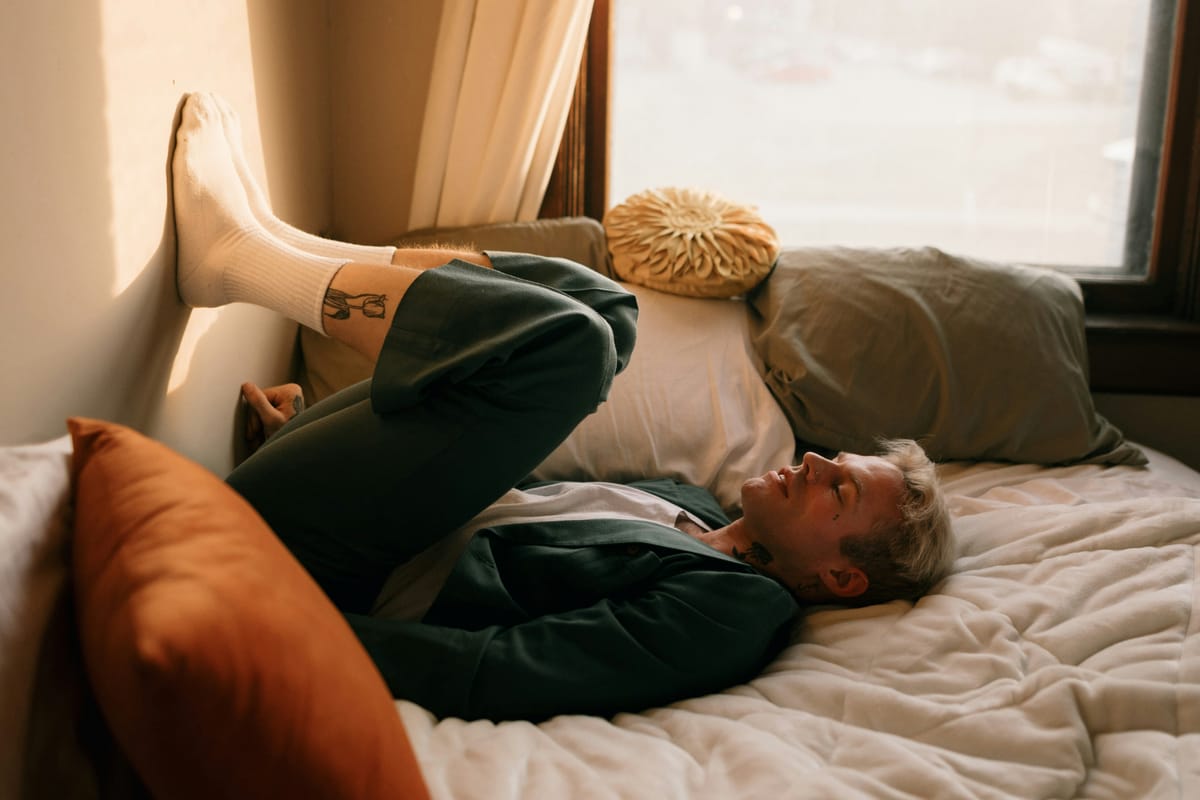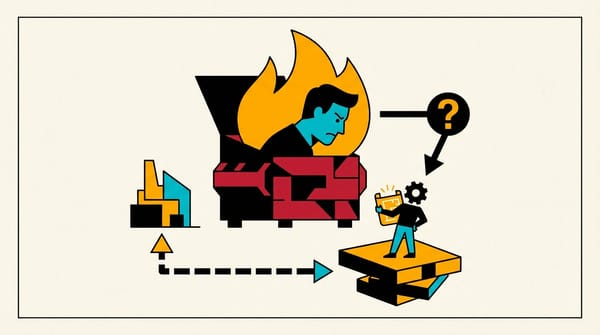Every Second Counts! Your Guide to Healthy Sleep: What Science Wants You to Know
¡Descubre cómo mejorar tu sueño! Aprende sobre los ciclos de sueño y los hábitos que te ayudarán a descansar mejor y vivir saludablemente.

Main Points
- In sleep, the body repairs and regulates itself. Death from lack of sleep is actually not from lack of sleep, but because the organs haven't been repaired for a long time.
- Regular sleep and wake times are more important than early sleeping and waking. If possible, go to bed and wake up at the same time every day.
- Sleep in a cool, dark room on a good mattress. Before bed, engage in quiet activities such as reading a book, listening to relaxing music, or doing light meditative exercises.
- There is a deep sleep phase: during this phase, the brain restores itself and the body. If a person is awakened during this phase, they will feel groggy.
- There is a paradoxical sleep phase: during this phase, the brain processes important impressions, remembers the necessary, and forgets the unnecessary. If awakened during this phase, a person will remember their dream.
- Together, these two phases last about an hour and a half. Therefore, healthy sleep cycles are multiples of one and a half hours: 6, 7.5, or 9 hours. Plus or minus half an hour.
- Daytime naps should be either 20 minutes or one and a half hours. If you sleep for an hour, there is a high chance you will wake up in the middle of the deep phase and feel sluggish for an hour.
- "Night owls" and "early birds" exist, but it's not what it seems.
- For the brain, it's important to distinguish day from night at the reflex level.
- The bed always signals sleep. If you eat or work in bed, the brain gets used to not sleeping there.
- The mattress is important. Do not skimp on it.
- Melatonin slows down organ function and lowers body temperature so it can rest properly.
The Body Repairs Itself During Sleep
- The brain performs some vital functions only during sleep. For example, it cleanses itself of harmful substances and restores blood pressure. It maintains homeostasis, so to speak.
- There is a hypothesis that during wakefulness, internal organs do not particularly communicate with the brain — as if it has more important matters to attend to. At night, the brain pays attention to the intestines, stomach, liver, etc. and checks what needs to be done: repairs, cleaning, tissue restoration, hormone correction, etc. You can imagine it as a doctor visiting a patient a couple of times a day to adjust medications.
- If you don't sleep for a long time, cognitive abilities also decline, but you don't die from it.
- Death occurs not from the lack of sleep itself but from diseases that accumulate due to missed "check-ups" by the brain — which happen during sleep. Rats deprived of sleep for several days experimentally died from intestinal inflammation. Most likely, the brain did not have time to diagnose the intestines, and they became uncontrollably inflamed.
The Brain Learns During Sleep
- We have at least two sleep phases: deep sleep and paradoxical (REM sleep). This is evident from an electroencephalogram.
- When we sleep, sensors of electrical activity first register the delta rhythm characteristic of deep sleep. After an hour, features of the alpha rhythm, characteristic of wakefulness, appear. This lasts 15–20 minutes. This is the so-called paradoxical sleep.
- During paradoxical sleep, the brain sorts through the information accumulated during the day. Therefore, solutions to complex problems often come in dreams. The brain selectively transfers impressions from the current day into long-term memory, from the hippocampus to the larger cortex. It's like RAM and a hard drive: some new things from the day we will remember for a long time, and some will be forgotten forever.
Deep sleep can be compared to a thorough cleaning at home, where the most hard-to-reach places are cleaned. Paradoxical sleep, in turn, is similar to sorting things: some we keep and put on shelves (long-term memory), and some we throw away (forget).
- Memory rewrites depend on the emotional background. What caused strong feelings in us is remembered longer. The more interesting the day, the richer the dreams.
- The brain willingly accepts into the hippocampus what is repeated multiple times or reinforced emotionally. Or what is put into it right before sleep.
- Not everyone remembers their dreams, but everyone has a paradoxical sleep phase. If you wake someone during paradoxical sleep, they will say they were dreaming.
How Much Sleep to Get Rested
- For biological clocks, it is more important to go to bed at the same time every day rather than before midnight. The brain does not count early hours for falling asleep as two; they are equivalent.
- For an adult, the normal range of sleep is 6–8 hours. Some need 6 hours, and others need 8 to feel good.
- It is more accurate to count sleep in cycles rather than hours. One cycle is 1.5 hours. So the norm is 4, 5, or 6 cycles.
If you want to wake up easily, set the alarm for the end of a cycle. For example, if you plan to sleep 7.5 hours (5 cycles of 1.5 hours), don't forget to add 10-15 minutes for falling asleep. This way, you will wake up when the brain has completed one of the cycles, making it easier to get out of bed.
- The recommended 8 hours of sleep is 5 completed cycles and a bit more. Half an hour or at least 10 minutes extra — time for falling asleep and waking up.
- There is no benefit to sleeping more than the norm. After 10 hours of sleep, lymph stagnates in the tissues.
Circadian Rhythms
- Biological clocks are scientifically known as the suprachiasmatic nuclei in the brain. Every cell and even separate molecules in the nuclei know that a day is 24 hours long. The point is that they not only remember but also maintain a single daily rhythm.
- For the suprachiasmatic nuclei, light is the main signal. They are directly connected to the visual center. When it gets dark, the cells in the nuclei signal the rest of the body's systems to prepare for sleep. Conversely, when the sun rises, it signals that it's time to wake up.
The modern lifestyle with bright artificial lighting, especially from gadget screens, can disrupt our internal clocks. For example, working on a computer or watching television before bed can delay melatonin production, which helps us fall asleep.
- Biological clocks can be reset but within a couple of hours. For the brain, frequent rhythm adjustments are traumatic, evidenced by jet lag — a depressed state and insomnia after changing time zones.
- Chronotype is the system of the suprachiasmatic nuclei. It is determined by our genes: some people are truly more of a morning person than a night owl. But it only affects how quickly you wake up with the sunrise and how traumatic an all-nighter is for you.
Rituals and Habits for Falling Asleep
- For the brain, it is important to distinguish day from night at the reflex level. Evening rituals can help with this: dim lighting, monotonous activities, a ventilated room, an English textbook on the nightstand.
- The bed always signals sleep. If you eat or work in bed, the brain gets used to not sleeping there.
- Napping for an hour during the day is not fatal but not beneficial either. The brain just enters the dreaming stage, and then it gets interrupted. You can take a 20–30 minute nap if you need a little boost. Or sleep a full 1.5-hour cycle and subtract this time from your night sleep.
- The mattress is important. Do not skimp on it.
- Blackout curtains are very helpful for quality sleep.
Sleep Chemistry
- The brain has a sleep center and a wakefulness center. They constantly compete with each other: one turns us on, the other off. The signals are sent by neurotransmitters. The most important are GABA and glutamate.
- GABA inhibits, while glutamate excites the nervous system. When one is consistently more than the other, insomnia, increased anxiety, and attention problems begin. Sedatives that synthesize precisely GABA, or gamma-aminobutyric acid, help with the deficiency.
- Serotonin is not as important but also works on the sleep center. If there are problems with its production, it means there is not enough tryptophan for it, and this protein we get only from food. There are supplements with tryptophan, but they do not help everyone.
- Norepinephrine interferes with falling asleep. It is generally a stress hormone, but one that feels good: after a video game, a parachute jump, or important performances. Be careful with cheese at night. Norepinephrine is formed from tyrosine — a dietary amino acid in proteins. And bacteria in cheeses can convert tyrosine into tyramine, which is molecularly similar to norepinephrine and acts the same way.
If you eat a piece of cheese containing tyramine at night, it can cause slight insomnia. Imagine that this tyramine acts on the brain like an internal alarm clock, preventing you from falling asleep.
- We have an auxiliary sleep center. When certain substances enter the bloodstream, the sleepy state intensifies. Sick — sleep. Ate, glucose spiked — want to sleep.
- Melatonin slows down organ function and lowers body temperature so it can rest properly. Like serotonin, melatonin is produced from tryptophan, so it comes in tablets. But for it to work properly, dense curtains are ideally needed.
- Glycine is an auxiliary inhibitor. It has a calming effect on some people.
- Histamine. Inhibitory effect, anti-motion sickness.
- Caffeine. Similar to adenosine molecules, which form when the body gets tired. Caffeine interferes with adenosine molecules. It does not give energy but helps to tap into deeper resources of the body to stay awake longer.
Checklist for Healthy Sleep:
- Go to bed and wake up at the same time every day, even on weekends.
- Sleep in a cool, dark room on a comfortable mattress.
- Avoid using gadgets an hour before bed — dim the lights and engage in quiet activities.
- Try to sleep in multiples of 1.5 hours: 6, 7.5, or 9 hours.
- Make the bed a zone only for sleep — do not eat or work in bed.
- Use dense curtains for complete darkness in the room.
- Do not overuse caffeine and avoid heavy meals before bed.
- Ventilate the room before bed and maintain a moderate temperature.
- If you need to nap during the day, sleep for 20 minutes or one and a half hours to not disrupt night sleep.
- Establish evening rituals: for example, reading, relaxing music, or a warm bath.
As always, I invite you to share your opinion in the comments
With love 😽 🤗 😘
K




